-
Home
-
Contributors
-
International
-
Account
-
Information
More From Contributor
- the one, the only. Our greatest tasting energy bar so far... Its smooth, melts in your mouth & not in your hand & it gives the usual Mule Bar kick of energy. Our recipe will make Delia, Gordon & even Ferran reach for their cheat sheets. Its got Fairtrade chocolate blended with anti-oxidant rich orange (and lemon) peel to give a massive zing & lift. We defy you not to leave your old kitkat behind & move on to Jimmys Choc Orange energy bar. The bells of St Clements were right, they just forgot the chocolate. This bar, like eventually all our products, comes in a compostable wrapper Mule Bar Jimmys Choc Orange energy bar features Contains 20% Afghan raisins & 4% dark chocolate Fairtrade certified 196 Kcal & 28g carbohydrate per bar Compostable wrapper Compostable Wrapper Explained In June 2011, an Apple Strudel Mule Bar rolled off the production line in an environmentally friendly, compostable wrapper. A small step but a vital one in Mule Bars direction to have all their products in compostable wrappers by the Spring of 2014. We are not suggesting in anyway that it is ok to drop our wrappers while outdoors. Our stance is firm. Eat your bar, put it in your home compost & feel good. Mule Bar explains this small but important detail further: Compostable bar info Our new wrapper is made from wood pulp which is a renewable resource. (All food wrappers for the 2012 London Olympics had to be made from compostable material). Our wrappers are made by a company called Nature Flex Where does the wood pulp come from? All the wood pulp used in the manufacture of Nature Flex films originates from non-genetically modified sources; & is sourced from four referenced suppliers whose operations have been certified by the Forest Stewardship Council (FSC), the Programme for the Endorsement of Forest Certification (PEFC), or a regional environmental body. Is the wood pulp FSC certified? Two of the suppliers are certified to FSC, one is partially certified to PEFC (and is steadily increasing the area of forestry under certification) & one is actively working towards FSC accreditation. Timing for composting:
- At home in compost
- 8 to 10 weeks
- Industrial composting
- 4
- 6 weeks
- Outdoor
- completely depends on the conditions but crucially need micro organisms to break down, 3 years a broad brush guideline for UK although we dont want to encourage litter. The wrapper is designed for composting as above
- home or Industrial. In the sea
- Roughly same as home composting What conditions are required for biodegradation to occur? Heat, water & oxygen are required by micro-organisms for efficient & effective biodegradation. Biodegradable plastics are metabolised by micro-organisms which transform the bioplastic product into carbon dioxide, water & biomass. What is the difference between the terms biodegradable & compostable? A biodegradable plastic will break down under the action of naturally occurring micro-organisms (e.g. bacteria, fungi or algae), but has no specific time frame & no requirement for not leaving a toxic residue. A compostable plastic is plastic that undergoes degrad ...
- the one, the only. Our greatest tasting energy bar so far... Its smooth, melts in your mouth & not in your hand & it gives the usual Mule Bar kick of energy. Our recipe will make Delia, Gordon & even Ferran reach for their cheat sheets. Its got Fairtrade chocolate blended with anti-oxidant rich orange (and lemon) peel to give a massive zing & lift. We defy you not to leave your old kitkat behind & move on to Jimmys Choc Orange energy bar. The bells of St Clements were right, they just forgot the chocolate. This bar, like eventually all our products, comes in a compostable wrapper Mule Bar Jimmys Choc Orange energy bar features Contains 20% Afghan raisins & 4% dark chocolate Fairtrade certified 196 Kcal & 28g carbohydrate per bar Compostable wrapper Compostable Wrapper Explained In June 2011, an Apple Strudel Mule Bar rolled off the production line in an environmentally friendly, compostable wrapper. A small step but a vital one in Mule Bars direction to have all their products in compostable wrappers by the Spring of 2014. We are not suggesting in anyway that it is ok to drop our wrappers while outdoors. Our stance is firm. Eat your bar, put it in your home compost & feel good. Mule Bar explains this small but important detail further: Compostable bar info Our new wrapper is made from wood pulp which is a renewable resource. (All food wrappers for the 2012 London Olympics had to be made from compostable material). Our wrappers are made by a company called Nature Flex Where does the wood pulp come from? All the wood pulp used in the manufacture of Nature Flex films originates from non-genetically modified sources; & is sourced from four referenced suppliers whose operations have been certified by the Forest Stewardship Council (FSC), the Programme for the Endorsement of Forest Certification (PEFC), or a regional environmental body. Is the wood pulp FSC certified? Two of the suppliers are certified to FSC, one is partially certified to PEFC (and is steadily increasing the area of forestry under certification) & one is actively working towards FSC accreditation. Timing for composting:
- At home in compost
- 8 to 10 weeks
- Industrial composting
- 4
- 6 weeks
- Outdoor
- completely depends on the conditions but crucially need micro organisms to break down, 3 years a broad brush guideline for UK although we dont want to encourage litter. The wrapper is designed for composting as above
- home or Industrial. In the sea
- Roughly same as home composting What conditions are required for biodegradation to occur? Heat, water & oxygen are required by micro-organisms for efficient & effective biodegradation. Biodegradable plastics are metabolised by micro-organisms which transform the bioplastic product into carbon dioxide, water & biomass. What is the difference between the terms biodegradable & compostable? A biodegradable plastic will break down under the action of naturally occurring micro-organisms (e.g. bacteria, fungi or algae), but has no specific time frame & no requirement for not leaving a toxic residue. A compostable plastic is plastic that undergoes ...
- At home in compost
- 8 to 10 weeks
- Industrial composting
- 4
- 6 weeks
- Outdoor
- completely depends on the conditions but crucially need micro organisms to break down, 3 years a broad brush guideline for UK although we dont want to encourage litter. The wrapper is designed for composting as above
- home or Industrial. In the sea
- Roughly same as home composting What conditions are required for biodegradation to occur? Heat, water & oxygen are required by micro-organisms for efficient & effective biodegradation. Biodegradable plastics are metabolised by micro-organisms which transform the bioplastic product into carbon dioxide, water & biomass. What is the difference between the terms biodegradable & compostable? A biodegradable plastic will break down under the action of naturally occurring micro-organisms (e.g. bacteria, fungi or algae), but has no specific time frame & no requirement for not leaving a toxic residue. A compostable plastic is plastic that undergoes degradation by biological processes during composting to yield carbon dioxide, water, inorganic compounds & biomass, at a rate consistent with o ...
- At home in compost
- 8 to 10 weeks
- Industrial composting
- 4
- 6 weeks
- Outdoor
- completely depends on the conditions but crucially need micro organisms to break down, 3 years a broad brush guideline for UK although we dont want to encourage litter. The wrapper is designed for composting as above
- home or Industrial. In the sea
- Roughly same as home composting What conditions are required for biodegradation to occur? Heat, water & oxygen are required by micro-organisms for efficient & effective biodegradation. Biodegradable plastics are metabolised by micro-organisms which transform the bioplastic product into carbon dioxide, water & biomass. What is the difference between the terms biodegradable & compostable? A biodegradable plastic will break down under the action of naturally occurring micro-organisms (e.g. bacteria, fungi or algae), but has no specific time frame & no requirement for not leaving a toxic residue. A compostable plastic is plastic that undergoes degradation by biological processes during composting to yield carbon dioxide, water, inorganic compounds & biomass, at a rate consis ...
- At home in compost
- 8 to 10 weeks
- Industrial composting
- 4
- 6 weeks
- Outdoor
- completely depends on the conditions but crucially need micro organisms to break down, 3 years a broad brush guideline for UK although we dont want to encourage litter. The wrapper is designed for composting as above
- home or Industrial. In the sea
- Roughly same as home composting What conditions are required for biodegradation to occur? Heat, water & oxygen are required by micro-organisms for efficient & effective biodegradation. Biodegradable plastics are metabolised by micro-organisms which transform the bioplastic product into carbon dioxide, water & biomass. What is the difference between the terms biodegradable & compostable? A biodegradable plastic will break down under the action of naturally occurring micro-organisms (e.g. bacteria, fungi or algae), but has no specific time frame & no requirement for not leaving a toxic residue. A compostable plastic is plastic that undergoes degradation by biological processes during composting to yield carbon dioxide, water, inorganic compounds & biomass, at a rate consistent with other known compostable materials (e.g. cellulose), & leaves no visible, distinguishable or toxic residue (ASTM D6400). ...
- At home in compost
- 8 to 10 weeks
- Industrial composting
- 4
- 6 weeks
- Outdoor
- completely depends on the conditions but crucially need micro organisms to break down, 3 years a broad brush guideline for UK although we dont want to encourage litter. The wrapper is designed for composting as above
- home or Industrial. In the sea
- Roughly same as home composting What conditions are required for biodegradation to occur? Heat, water & oxygen are required by micro-organisms for efficient & effective biodegradation. Biodegradable plastics are metabolised by micro-organisms which transform the bioplastic product into carbon dioxide, water & biomass. What is the difference between the terms biodegradable & compostable? A biodegradable plastic will break down under the action of naturally occurring micro-organisms (e.g. bacteria, fungi or algae), but has no specific time frame & no requirement for not leaving a toxic residue. A compostable plastic is plastic that undergoes degradation by biological processes during composting to yield carbon dioxide, water, inorganic compounds & biomass, at a rate consistent with other known compostable materials (e.g. cellulose), & leaves no visible, distinguishable or toxic residue (ASTM D6400). Storage -&n ...
- At home in compost
- 8 to 10 weeks
- Industrial composting
- 4
- 6 weeks
- Outdoor
- completely depends on the conditions but crucially need micro organisms to break down, 3 years a broad brush guideline for UK although we dont want to encourage litter. The wrapper is designed for composting as above
- home or Industrial. In the sea
- Roughly same as home composting What conditions are required for biodegradation to occur? Heat, water & oxygen are required by micro-organisms for efficient & effective biodegradation. Biodegradable plastics are metabolised by micro-organisms which transform the bioplastic product into carbon dioxide, water & biomass. What is the difference between the terms biodegradable & compostable? A biodegradable plastic will break down under the action of naturally occurring micro-organisms (e.g. bacteria, fungi or algae), but has no specific time frame & no requirement for not leaving a toxic residue. A compostable plastic is plastic that undergoes degradation by biological processes during composting to yield carbon dioxide, water, inorganic compounds & biomass, at a rate consistent with other known compostable materials (e.g. cellulose), & leaves no visible, distinguishable or toxic residue (ASTM D6400). Storage - Can Nature Flex™ biodegrade on the shelf? No. Nature Flex™ grades are very stable & will not biodegrade or show any loss in mechanical properties on the shelf. Biodegradation will only be initiated in ...
- RRP £38.40
- Buy a box & save! The mixed 24 box contains the following bars: Mango Tango x 4 Hunza Nut x 4 Apple Strudel x 4 Summer Pudding x 4 Jimmys Chocolate Orange x 4 Pinacolada x 2 Liquorice Allsports x 2 Mule Bar energy bar features Contain natural fruit & ingedients to make for great taste. Easy on the stomach too Fairtrade certified 195 Kcal & 37g carbohydrate per energy bar Compostable wrapper Compostable Wrapper Explained In June 2011, an Apple Strudel Mule Bar rolled off the production line in an environmentally friendly, compostable wrapper. A small step but a vital one in Mule Bars direction to have all their products in compostable wrappers by the Spring of 2014. We are not suggesting in anyway that it is ok to drop our wrappers while outdoors. Our stance is firm. Eat your bar, put it in your home compost & feel good. Mule Bar explains this small but important detail further: Compostable bar info Our new wrapper is made from wood pulp which is a renewable resource. (All food wrappers for the 2012 London Olympics had to be made from compostable material). Our wrappers are made by a company called Nature Flex Where does the wood pulp come from? All the wood pulp used in the manufacture of Nature Flex films originates from non-genetically modified sources; & is sourced from four referenced suppliers whose operations have been certified by the Forest Stewardship Council (FSC), the Programme for the Endorsement of Forest Certification (PEFC), or a regional environmental body. Is the wood pulp FSC certified? Two of the suppliers are certified to FSC, one is partially certified to PEFC (and is steadily increasing the area of forestry under certification) & one is actively working towards FSC accreditation. Timing for composting:
- At home in compost
- 8 to 10 weeks
- Industrial composting
- 4
- 6 weeks
- Outdoor
- completely depends on the conditions but crucially need micro organisms to break down, 3 years a broad brush guideline for UK although we dont want to encourage litter. The wrapper is designed for composting as above
- home or Industrial. In the sea
- Roughly same as home composting What conditions are required for biodegradation to occur? Heat, water & oxygen are required by micro-organisms for efficient & effective biodegradation. Biodegradable plastics are metabolised by micro-organisms which transform the bioplastic product into carbon dioxide, water & biomass. What is the difference between the terms biodegradable & compostable? A biodegradable plastic will break down under the action of naturally occurring micro-organisms (e.g. bacteria, fungi or algae), but has no specific time frame & no requirement for not leaving a toxic residue. A compostable plastic is plastic that undergoes degradation by biological processes during co ...
- a slice of pineapple with a heavenly shot of coconut. For an added surprise topping weve added Chinese Goji berries for their vitamin C enhancing capabilities. We are searching for ways to make this a Fairtrade bar but as yet cant find enough ingredients to satisfy those sticklers at Fairtrade HQ. Theyre doing a great job of making sure people like us do what it says on the wrapper & we support them. A favourite bar for sometime with us at Mule Bar. It is favoured for its naturally sweet taste, whilst out running or cycling, to keep you fuelled for that bit longer. Mule Bar Pinacolada energy bar features 33% sun-dried Pineapple & 2% Goji Berries 205 Kcal & 38g carbohydrates per bar Dried Pineapple, a source of vitamin C, potassium, carbohydrate & fibre Goji Berry, a source of Vitamin C, iron & Vitamin A Compostable Wrapper Explained In June 2011, an Apple Strudel Mule Bar rolled off the production line in an environmentally friendly, compostable wrapper. A small step but a vital one in Mule Bars direction to have all their products in compostable wrappers by the Spring of 2014. We are not suggesting in anyway that it is ok to drop our wrappers while outdoors. Our stance is firm. Eat your bar, put it in your home compost & feel good. Mule Bar explains this small but important detail further: Compostable bar info Our new wrapper is made from wood pulp which is a renewable resource. (All food wrappers for the 2012 London Olympics had to be made from compostable material). Our wrappers are made by a company called Nature Flex Where does the wood pulp come from? All the wood pulp used in the manufacture of Nature Flex films originates from non-genetically modified sources; & is sourced from four referenced suppliers whose operations have been certified by the Forest Stewardship Council (FSC), the Programme for the Endorsement of Forest Certification (PEFC), or a regional environmental body. Is the wood pulp FSC certified? Two of the suppliers are certified to FSC, one is partially certified to PEFC (and is steadily increasing the area of forestry under certification) & one is actively working towards FSC accreditation. Timing for composting:
- At home in compost
- 8 to 10 weeks
- Industrial composting
- 4
- 6 weeks
- Outdoor
- completely depends on the conditions but crucially need micro organisms to break down, 3 years a broad brush guideline for UK although we dont want to encourage litter. The wrapper is designed for composting as above
- home or Industrial. In the sea
- Roughly same as home composting What conditions are required for biodegradation to occur? Heat, water & oxygen are required by micro-organisms for efficient & effective biodegradation. Biodegradable plastics are metabolised by micro-organisms which transform the bioplastic product into carbon dioxide, water & biomass. What is the difference between the terms biodegradable & compostable? A biodegradable plastic will break down under the action of naturally occurring micro-organisms (e.g. bacteria, fungi or algae), but has no specific time frame & no requirement for not leaving a toxic residue. A com ...
- a slice of pineapple with a heavenly shot of coconut. For an added surprise topping weve added Chinese Goji berries for their vitamin C enhancing capabilities. We are searching for ways to make this a Fairtrade bar but as yet cant find enough ingredients to satisfy those sticklers at Fairtrade HQ. Theyre doing a great job of making sure people like us do what it says on the wrapper & we support them. A favourite bar for sometime with us at Mule Bar. It is favoured for its naturally sweet taste, whilst out running or cycling, to keep you fuelled for that bit longer. Mule Bar Pinacolada energy bar features 33% sun-dried Pineapple & 2% Goji Berries 205 Kcal & 38g carbohydrates per bar Dried Pineapple, a source of vitamin C, potassium, carbohydrate & fibre Goji Berry, a source of Vitamin C, iron & Vitamin A Compostable Wrapper Explained In June 2011, an Apple Strudel Mule Bar rolled off the production line in an environmentally friendly, compostable wrapper. A small step but a vital one in Mule Bars direction to have all their products in compostable wrappers by the Spring of 2014. We are not suggesting in anyway that it is ok to drop our wrappers while outdoors. Our stance is firm. Eat your bar, put it in your home compost & feel good. Mule Bar explains this small but important detail further: Compostable bar info Our new wrapper is made from wood pulp which is a renewable resource. (All food wrappers for the 2012 London Olympics had to be made from compostable material). Our wrappers are made by a company called Nature Flex Where does the wood pulp come from? All the wood pulp used in the manufacture of Nature Flex films originates from non-genetically modified sources; & is sourced from four referenced suppliers whose operations have been certified by the Forest Stewardship Council (FSC), the Programme for the Endorsement of Forest Certification (PEFC), or a regional environmental body. Is the wood pulp FSC certified? Two of the suppliers are certified to FSC, one is partially certified to PEFC (and is steadily increasing the area of forestry under certification) & one is actively working towards FSC accreditation. Timing for composting:
- At home in compost
- 8 to 10 weeks
- Industrial composting
- 4
- 6 weeks
- Outdoor
- completely depends on the conditions but crucially need micro organisms to break down, 3 years a broad brush guideline for UK although we dont want to encourage litter. The wrapper is designed for composting as above
- home or Industrial. In the sea
- Roughly same as home composting What conditions are required for biodegradation to occur? Heat, water & oxygen are required by micro-organisms for efficient & effective biodegradation. Biodegradable plastics are metabolised by micro-organisms which transform the bioplastic product into carbon dioxide, water & biomass. What is the difference between the terms biodegradable & compostable? A biodegradable plastic will break down under the action of naturally occurring micro-organisms (e.g. bacteria, fungi or algae), but has no specific time frame & no requirement for not leaving a toxic residue. A ...

MuleBar Energy Bar Liquorice - Single Bar
environmentally friendly, compostable wrapper. A small step but a vital one in MuleBars direction to have all their products in compostable wrappers by the Spring of 2014. We are not suggesting in anyway that it is ok to drop our wrappers while outdoors. Our stance is firm. Eat your bar, put it in your home compost and feel good. MuleBar explains this small but important detail further: Compostable bar info Our new wrapper is made from wood pulp which is a renewable resource. (All food wrappers for the 2012 London Olympics had to be made from compostable material). Our wrappers are made by a company called NatureFlex Where does the wood pulp come from? All the wood pulp used in the manufacture of NatureFlex films originates from non-genetically modified sources; and is sourced from four
referenced suppliers whose operations have been certified by the Forest Stewardship Council (FSC), the Programme for the Endorsement of Forest Certification (PEFC), or a regional environmental body. Is the wood pulp FSC certified? Two of the suppliers are certified to FSC, one is partially certified to PEFC (and is steadily increasing the area of forestry under certification) and one is actively working towards FSC accreditation. Timing for composting: - At home in compost - 8 to 10 weeks - Industrial composting - 4 - 6 weeks - Outdoor - completely depends on the conditions but crucially need micro organisms to break down, 3 years a broad brush guideline for UK although we dont want to encourage litter. The wrapper is designed for composting as above - home or Industrial. In the sea -
Roughly same as home composting What conditions are required for biodegradation to occur? Heat, water and oxygen are required by micro-organisms for efficient and effective biodegradation. Biodegradable plastics are metabolised by micro-organisms which transform the bioplastic product into carbon dioxide, water and biomass. What is the difference between the terms biodegradable and compostable? A biodegradable plastic will break down under the action of naturally occurring micro-organisms (e.g. bacteria, fungi or algae), but has no specific time frame and no requirement for not leaving a toxic residue. A compostable plastic is plastic that undergoes degradation by biological processes during composting to yield carbon dioxide, water, inorganic compounds and biomass, at a rate
consistent with other known compostable materials (e.g. cellulose), and leaves no visible, distinguishable or toxic residue (A
This page now acts as a permanent archive for this product. Add more information using the comments box below to ensure it can still be found by future generations.
Use our search facility to see if it is available from an alternative contributor.
- Availability: Out Of Stock
- Supplier: Edge And Wax
- SKU: 1111305
Product Description
100% natural energy bars with seriously tasty ingredients! A single bar that packs a lot of carbohydrate whilst tasting great too. Liquorice flavour. For all you liquorice, pastis or fennel fans, this is THE energy bar. A lot of feedback from triathletes, cyclists & other long distance athletes has been that it would be great to have something which isnt another fruit energy bar. Heres the first. Liquorice is exceptionally good for the digestive system apart from also being a great healer. Mule Bar Liquorice energy bar features Contains 20% coconut, liquorice pieces & fennel seeds Organic certified 222 Kcal & 32g carbohydrates per bar Liquorice contains calcium Compostable Wrapper Explained In June 2011, an Apple Strudel Mule Bar rolled off the production line in an environmentally friendly, compostable wrapper. A small step but a vital one in Mule Bars direction to have all their products in compostable wrappers by the Spring of 2014. We are not suggesting in anyway that it is ok to drop our wrappers while outdoors. Our stance is firm. Eat your bar, put it in your home compost & feel good. Mule Bar explains this small but important detail further: Compostable bar info Our new wrapper is made from wood pulp which is a renewable resource. (All food wrappers for the 2012 London Olympics had to be made from compostable material). Our wrappers are made by a company called Nature Flex Where does the wood pulp come from? All the wood pulp used in the manufacture of Nature Flex films originates from non-genetically modified sources; & is sourced from four referenced suppliers whose operations have been certified by the Forest Stewardship Council (FSC), the Programme for the Endorsement of Forest Certification (PEFC), or a regional environmental body. Is the wood pulp FSC certified? Two of the suppliers are certified to FSC, one is partially certified to PEFC (and is steadily increasing the area of forestry under certification) & one is actively working towards FSC accreditation. Timing for composting:
- At home in compost
- 8 to 10 weeks
- Industrial composting
- 4
- 6 weeks
- Outdoor
- completely depends on the conditions but crucially need micro organisms to break down, 3 years a broad brush guideline for UK although we dont want to encourage litter. The wrapper is designed for composting as above
- home or Industrial. In the sea
- Roughly same as home composting What conditions are required for biodegradation to occur? Heat, water & oxygen are required by micro-organisms for efficient & effective biodegradation. Biodegradable plastics are metabolised by micro-organisms which transform the bioplastic product into carbon dioxide, water & biomass. What is the difference between the terms biodegradable & compostable? A biodegradable plastic will break down under the action of naturally occurring micro-organisms (e.g. bacteria, fungi or algae), but has no specific time frame & no requirement for not leaving a toxic residue. A compostable plastic is plastic that undergoes degradation by biological processes during composting to yield carbon dioxide, water, inorganic compounds & biomass, at a rate consistent with other known compostable materials (e.g. cellulose), & leaves no visible, distinguishable or toxic residue (A
Reviews/Comments
Add New
Intelligent Comparison
We couldn't find anything!
Perhaps this product's unique.... Or perhaps we are still looking for comparisons!
Click to bump this page and we'll hurry up.
Price History
We couldn't find any historical pricing!
Vouchers
Do you know a voucher code for this product or supplier? Add it to Insights for others to use.


 United Kingdom
United Kingdom
 France
France
 Germany
Germany
 Netherlands
Netherlands
 Sweden
Sweden
 USA
USA
 Italy
Italy
 Spain
Spain
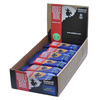
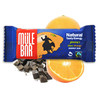
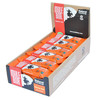
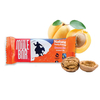
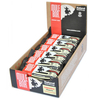


 Denmark
Denmark